Looking for a CMO, CDMO for freeze drying or lyophilization services? Find contract manufacturers offering freeze-drying services on PharmaCompass
Q1. What is lyophilization or freeze drying?
Lyophilization and freeze drying are synonymous. The sterile lyophilization technique is a water removal process typically used to preserve perishable materials, to extend shelf life or to make materials more convenient for transport. Lyophilization works by freezing materials, then reducing the pressure and adding heat to allow the frozen water in the material to sublimate. Freeze drying or the sterile lyophilization technique retains the physical structure of materials and thereby preserves them for transport.
Freeze drying or lyophilization contract services may be used so that products remain stable and are easier to store at room temperature. Biological materials in particular should be dried to stabilize them for storage, preservation and shipping. Lyophilization contract services significantly reduce damage to biological samples. It consists of three separate, unique, and interdependent processes; freezing, primary drying (sublimation), and secondary drying (desorption).
- Freezing Phase
During this preliminary stage, a sample is frozen, which means the water in the product is converted to ice, thereby the phase has changed from liquid to solid.
- Primary Drying (Sublimation) Phase
Primary drying is the most time-consuming and energy-intensive step in freeze-drying bulk products or the sterile lyophilization technique. During the primary drying phase, pressure is lowered and enough heat is supplied to the material for the water to sublimate. Sublimation is the transition of a substance directly from the solid to the gas state, without passing through the liquid state.
- Secondary Drying (Desorption) Phase
Finally, any residual water present, which is strongly bound to the molecules of the sample, is converted to vapour and removed from the sample via a process called desorption.
Controlled freeze-drying keeps the product temperature low enough during the process to avoid changes in the dried product appearance and characteristics. It is an excellent method for preserving a wide variety of heat-sensitive materials such as proteins, microbes, pharmaceuticals, tissues and plasma.
Moreover, freeze drying capabilities may be used to prepare dosage forms that are to be reconstituted for injection. Lyophilization contract services are also used in the biotechnology and biomedical industries to preserve vaccines, blood samples, purified proteins, and other biological material.
Q2. What are the benefits of lyophilization or freeze drying?
The objectives of pharmaceutical contract lyophilization services are enumerated below.
1. Preserving the biological activity of a product.
2. Reducing the weight of the product for feasible transportation.
3. Increasing the shelf-life and stability of the product.
4. Enabling the drying of thermolabile products.
5. Eliminating the need for refrigeration of products.
6. Achieving accurate and sterile dosing of the product in its final container.
The lyophilization process has various advantages compared to other drying and preserving techniques. Some of these benefits are noted below.
- Lyophilization’s principle advantages over conventional drying methods (which may incorporate crystallization, filtration, or precipitation) is the preservation of chemical and biological potency, homogeneity in the final product, and ease of dispensing/metering before final packaging.
- Freeze drying capabilities or lyophilization capacity increases the stability of a dry powder as well as the product stability in a dry state as water is completely removed from the product. Furthermore, water can be removed without excessive heating, which reduces the stability of a product.
- Lyophilization capacity makes it much easier to achieve sterility assurance and freedom from unwanted particles compared to using other drying methods for the handling of dry powders.
- The lyophilization process results in long shelf lives for a powder formulation which can be reconstituted at the point of use. Easy reconstitution significantly reduces weight, makes the products easier to transport, and maintains biochemical and chemical reagent quality. As Injectable biopharmaceuticals become a more prominent part of the overall drug market, the value of lyophilized products has increased significantly.
- Freeze-dried products can be reconstituted quickly and easily, which is particularly valuable in the case of emergency vaccines and antibodies, which need to be administered as quickly as possible.
- Freeze-drying is not limited to complex parenteral formulations, but can also be used for fast dissolving sublingual tablets. Tablets can have very low disintegration time and have great mouth feel due to fast melting effects.
- Protecting the activity of enzyme products and the viability of bacterial cultures that are used in scientific experimentation is very important. Lyophilization has been the most extensively used technique for maintaining the integrity of biopharmaceuticals.
- Lyophilization pharmaceutical manufacturing services can also be employed to produce stable intermediates in drug product development and manufacturing. Hydrolytically unstable formulation components such as PLGA microparticles or fragile APIs may be lyophilized to create a longer shelf life and accommodate multi-step sterile drug product manufacturing services.
Q3. What is aseptic fill finish in parenteral sterile drug product manufacturing?
There are many new parenteral products, including anti-infectives, biotechnology derived products, and in-vitro diagnostics which are manufactured as lyophilized products.
Parenteral drugs, which may be a biologic or a small molecule, refers to drugs that use non-oral means of administration by injecting the drug directly into the body, typically through three common routes of administration: intramuscular, subcutaneous and intravenous.
There are many types of parenteral products, but some complex parenteral formulations which are unstable in solution form are subjected to lyophilization. Lyophilization capacity is particularly beneficial to parenteral drug developers, as a stable powder for injection can be easily packaged and transferred as a finished drug product.
The steps involved in manufacturing sterile parenterals and injectables for clinical and commercial supply are noted below.
Step 1: Preformulation studies
Step 2: Process compatibility
Step 3: Compounding and mixing
Step 4: Filtration
Step 5: Aseptic fill and finish
Step 6: Closing or stopping
Step 7: Inspection
Step 8: Labeling and Packaging
Aseptic Fill Finish Services or Sterile Fill Finish Services
Aseptic fill finish is the final sterile manufacturing step in the overall drug manufacturing process. Modern parenteral pharmaceuticals have well-defined manufacturing requirements to meet regulatory and market needs. First and foremost, injectable drugs must be free of all microorganisms.
To achieve that aim, they are packaged aseptically in a Class 100 cleanroom with strict limits on viable and particulate contamination.
Therefore, aseptic fill finish is the process during which a sterile drug is transferred from a filling needle to a sterile container, usually a vial or prefilled syringe. Normally, the stoppering (closing) of a container happens after, except when a drug requires sterile lyophilization.
To ensure the sterility of the drug product all aseptic fill finish services must be performed in a cleanroom, in which high-efficiency particulate air (HEPA) is circulated in a single direction. Every component from clinical and commercial supply involved in the aseptic fill and finish process must be sterilized or sanitized before entering the cleanroom. Lastly, the lyophilization process must be thought out and organized efficiently.
Pre-filled syringes and vials are two of the most common aseptic fill finish solutions for complex parenteral formulations used for clinical and commercial supply.
Q4. What are the challenges involved in aseptic fill finish?
Aseptic manufacturing (sterile manufacturing) and filling of sterile drugs, also known as sterile filling, still remains one of the most critical processes in biopharmaceutical sterile drug product manufacturing. This is due to its highly technique driven processes and the potential safety impact to the end user, usually an already compromised patient.
Aseptic fill finish methods can vary between preclinical to clinical scale hand filling (eg. phase i / phase ii clinical material), to small volume semi-automated filling, to fully automated high-volume production batches.
Aseptic manufacturing or sterile manufacturing is uniquely challenging because it requires careful planning, thoroughly trained personnel with the appropriate mindset, and specialized facilities or equipment to properly execute a project. Some of the challenges faced during aseptic fill and finish are noted below.
- Outsourcing Challenge
Matching production volume needs in the preclinical to clinical scale (eg. phase i / phase ii clinical material) with the commercial phase is challenging during aseptic manufacturing. At times, providers don’t have the full range of analytical-testing capabilities they say they do, and therefore cannot release products as they dont not comply with regulatory standards. Carefully selecting a lyophilization contract manufacturer - Contract Development and Manufacturing Organization (CDMO) or CMO partner - can help overcome outsourcing challenges with fill finish services.
- Scale Up & Technology Transfer Challenges
During aseptic fill finish activities there is no scope for error in scale-up and tech transfer which makes sterile fill finish more challenging.
- Cost Related Challenge
Aseptic fill finish service providers have to invest in equipment and technology, specialized facilities or cleanrooms, and experienced personnel to carry out sterile fill finish services, which can be very costly. Outsourcing contract aseptic fill finish services to lyophilization contract manufacturers such as Contract Development and Manufacturing Organizations (CDMOs) or CMOs can be a feasible solution for cost related challenges with fill finish services.
- Time Related Challenge
Aseptic fill and finish or sterile fill finish services are pharmaceutical manufacturing services used to manufacture products for preclinical to clinical scale (eg. phase i / phase ii clinical material) and commercial scale. These pharmaceutical manufacturing services may be very time consuming as careful consideration is required to ensure the sterility of products. CDMOs and CMOs which handle such projects regularly may be able to provide more efficient and faster sterile fill finish services.
- Liquid vs. Lyophilized Product
In general, bio manufacturers face challenges with fill finish services when dealing with biologics that have been formulated into either a liquid form or a lyophilized powder. One main challenge is understanding the product’s characteristics and behavior under different circumstances, including what parameters may be necessary to lyophilize the product.
Q5. Which are the leading companies offering pharmaceutical contract lyophilization services?
As the number of complex molecules in the drug development pipeline increases, more and more products stand to benefit from lyophilization. Since its introduction, bulk lyophilization (freeze-drying) has been a mainstay for manufacturers to stabilize products and ensure they are durable and safe for as long as possible.
In recent times, lyophilization has experienced a surge in interest due to the rising proportion of biopharmaceuticals being developed and manufactured that are generally unstable in aqueous form.
Therefore many companies are offering bulk lyophilization contract services (freeze-driving contract services) - formulation development services and manufacturing services - including the likes of Contract Development and Manufacturing Organizations (CDMOs) and CMOs.
Some of the leading lyophilization contract manufacturers offering pharmaceutical contract lyophilization services and sterile fill-finish for complex drug products are explored below.
AbbVie Contract Manufacturing
AbbVie Contract Manufacturing provides lyophilization process optimization, scale-up, and technical transfer as a part of their extensive formulation and scale-up services, at all phases of development. They offer lyophilized vials, liquid filled vials and pre-filled syringes. AbbVie Contract Manufacturing also offers bulk lyophilization contract services for highly potent drugs and sterile fill-finish for complex drug products.
Oncomed Manufacturing A.S
Oncomed's scientific expertise in sterile processing and aseptic fill finish in the large molecules space includes contract services like freeze drying organic solvents with automatic loading and unloading. As a specialized CDMO it brings its expertise to the sterile processing and aseptic fill and finish of complex formulations.
Madras Pharmaceuticals
Steril-Gene Life Sciences is a pharmaceutical company, offering formulation development services along with GMP filling services and manufacturing services for a range of pharmaceutical preparations like lyophilized / general injections, tablets, hard gelatin capsules, soft gelatin capsules, sachets, etc.
Famar S.A.
Famar has greatly reinforced its position as a European leader in freeze drying capabilities (freeze-drying bulk products) and aseptic filling contract manufacturing / GMP filling services by building a total freeze drying capacity of 203 sqm with 6 industrial lyophilizers from 20 to 37 sqm and 2 pilot lyophilizers. They offer aseptically filled and/or terminally sterilized forms in ampoules, (1-10ml), glass vials (2-20ml) or plastic vials.
S.C. Rompharm Company SRL
In 2017 Rompharm Company, certified two, new, complete, manufacturing lines for sterile solutions (GMP filling services) aseptically prepared, conditioned in monodoses with a fill volume ranging between 0, 1 and 3 ml and a complete manufacturing line for freeze dried products in glass vials. They have the ability to offer sterile fill-finish for complex drug products.
Sofarimex
Sofarimex is one of the largest Iberian producers of lyophilized products (freeze-drying bulk products) with a current capacity of 9 million units per year, this unit production is state of the art in this sector and fully satisfies the market needs and demands. With a large experience and know-how in sterile lyophilized products, a new 1,100 m” production unit was built in 2009.
All Suppliers






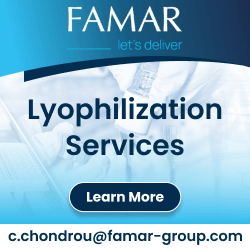
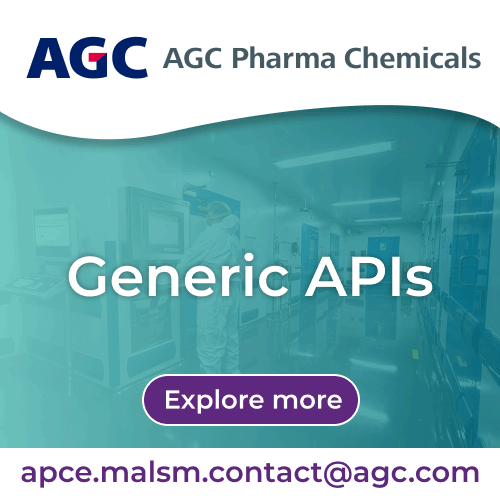
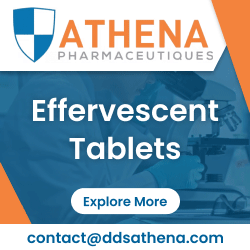
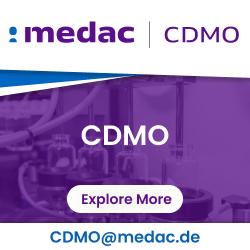
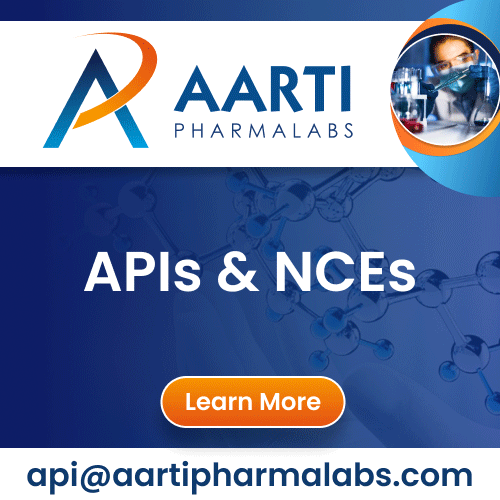
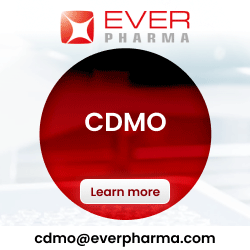




 FAMAR CDMO- From early development to commercial manufacturing.
FAMAR CDMO- From early development to commercial manufacturing.











